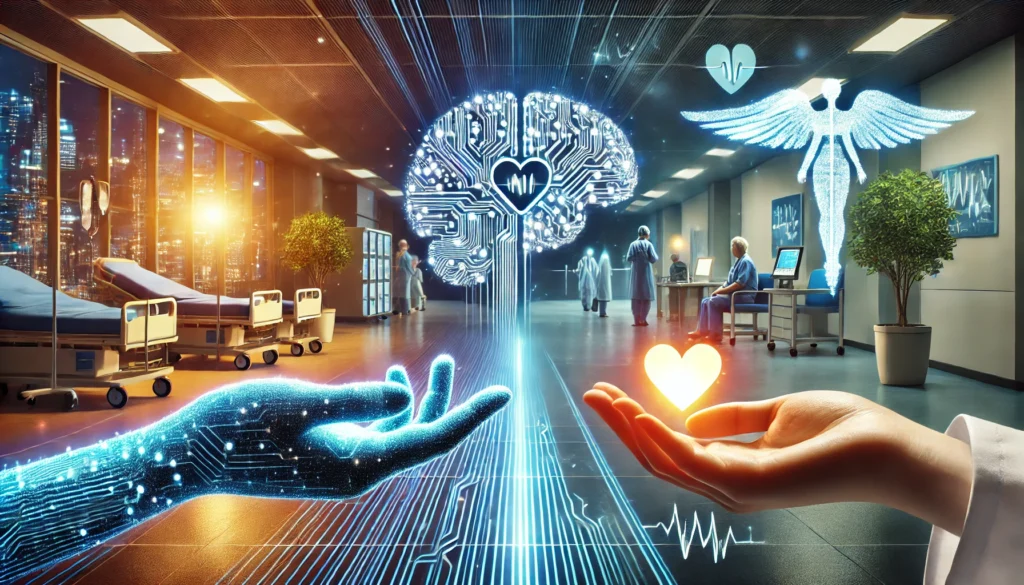Artificial intelligence (AI) has woven itself into the fabric of modern healthcare, promising unprecedented advancements while simultaneously raising profound ethical questions. From AI-driven diagnostics to personalized treatment plans, the technology is transforming how we approach medicine. Yet, as we marvel at its potential, a deeper conversation is trending across platforms, newsrooms, and dinner tables: At what cost does this innovation come, and how do we ensure it remains humane? Today, this topic dominates discourse, reflecting both our excitement and unease about the future.

The Promise of AI in Healthcare
The allure of AI in healthcare is undeniable. Algorithms can now analyze medical imaging with accuracy rivaling—or in some cases surpassing—human radiologists. Predictive models identify at-risk patients before symptoms escalate, potentially saving millions of lives. AI-powered wearables monitor vital signs in real time, offering a lifeline to those with chronic conditions. In underserved regions, AI chatbots provide basic medical advice where doctors are scarce, democratizing access to care.
Take, for instance, the recent rollout of AI systems that tailor cancer treatments to individual genetic profiles. These tools sift through vast datasets—genomic sequences, clinical trials, and patient histories—to recommend therapies with precision that was once unimaginable. Hospitals report faster recovery times and improved outcomes, fueling optimism that AI could be the key to solving some of medicine’s toughest challenges.
The Ethical Fault Lines
Yet, beneath the surface of this technological triumph lie ethical fault lines that demand scrutiny. One of the most pressing concerns is bias. AI systems are only as impartial as the data they’re trained on. Historical healthcare disparities—such as underrepresentation of minorities or women in clinical studies—can seep into algorithms, leading to skewed diagnoses or treatments. A 2024 study revealed that an AI tool used in U.S. hospitals was less likely to recommend follow-up care for Black patients compared to white patients with identical symptoms, echoing systemic inequities rather than erasing them.
Then there’s the question of privacy. AI thrives on data—mountains of it. Electronic health records, genetic information, and even lifestyle details feed these systems. But who owns this data? Patients often consent to its use without fully grasping how it might be shared or exploited. Recent scandals involving tech giants mining health data for profit have only deepened public mistrust. In an era where a single breach could expose millions of sensitive records, the stakes couldn’t be higher.
Perhaps the most philosophical dilemma is dehumanization. As AI takes on more decision-making roles, from triaging emergencies to prescribing medications, the human touch in healthcare risks erosion. Patients already report feeling like “data points” rather than people when interacting with automated systems. Doctors, too, worry that over-reliance on AI could dull their clinical intuition, turning them into overseers of machines rather than healers.
The Trending Debate: Autonomy vs. Efficiency
Today’s conversations online and in policy circles center on a core tension: How do we balance patient autonomy with AI’s efficiency? Proponents argue that AI frees up time for doctors to focus on empathy and complex cases, enhancing care rather than replacing it. Critics counter that efficiency shouldn’t trump consent or agency. A viral story from this week illustrates this divide: a woman in London discovered an AI had flagged her for a preventative procedure she hadn’t requested, sparking outrage over “unseen hands” guiding her fate.
This incident has ignited calls for stricter regulations. The European Union is debating an “AI Healthcare Charter” that would mandate transparency—patients must know when and how AI influences their care. In contrast, some U.S. tech leaders push for a lighter touch, warning that overregulation could stifle innovation. The public, meanwhile, seems caught between awe at AI’s capabilities and fear of losing control.
A Path Forward
So, where do we go from here? The trending nature of this topic suggests it’s not just a passing concern—it’s a reckoning. To harness AI’s potential without sacrificing our values, we need a multi-pronged approach:
- Bias Mitigation: Developers must prioritize diverse datasets and continuous auditing of AI outputs. Independent oversight bodies could certify systems as “equity-compliant.”
- Data Sovereignty: Patients should have explicit ownership of their health data, with opt-in mechanisms for AI use and clear penalties for breaches.
- Human-Centric Design: AI should augment, not supplant, the doctor-patient relationship. Interfaces could be built to explain decisions in plain language, fostering trust.
- Global Standards: International cooperation is vital. Healthcare AI crosses borders—its governance should, too.
The Bigger Picture
As I write this on March 23, 2025, the ethical implications of AI in healthcare feel less like a niche debate and more like a mirror reflecting our collective hopes and fears. We stand at a crossroads: Will AI become a tool of empowerment, lifting humanity to new heights, or a Pandora’s box that widens gaps and erodes trust? The answer lies not just in code, but in the choices we make today.
What do you think? Should AI have the final say in your care, or is the human element non-negotiable? The conversation is trending for a reason—because it’s about us, all of us.
